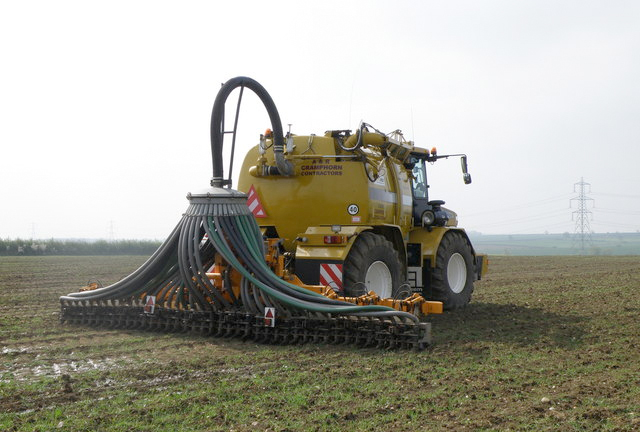
Farming associations have criticised the changes to the Nitrate Vulnerable Zone (NVZ) programme introduced by Defra this week.
The NFU said the changes to the NVZ were 'unnecessary' and will pressure an already struggling dairy industry by making it difficult to utilise slurry effectively.
The Tenant Farmers Association warned both the English and Welsh Governments that proposals for changes to their Nitrate Vulnerable Zone (NVZ) action plans are unjustified and risk serious damage to the agricultural industry.
"We are concerned over several aspects of proposals contained in the consultations of both DEFRA and the Welsh Government for the review of the implementation of the Nitrates Directive" said TFA Adviser, Sara Sumner.
"The TFA is opposed strongly to the proposals to include the whole of England and Wales within a Nitrate Vulnerable Zone. The designation of NVZ’s should be based only on strong scientific evidence. It is unreasonable to map the entire country as an NVZ without clear justification of the need and as a result adding significant and unwarranted burdens on farmers".
Despite Defra leaving many parts of the NVZ Action Programme unchanged, a two week extension of the closed period for spreading slurry and poultry manure will increase the severity and costliness of the programme. This comes despite the Government's own evidence showing a widespread and continuing decline in nitrate levels.
In its consultation response in March, the NFU questioned the necessity of pre-empting results of the 2008 Action Programme, which has not had long enough to contribute to further reductions in nitrate levels.
“Our members will find it more difficult to utilise slurry effectively without causing crop or soil damage as the Government continues to shrink the window when application is practical" said NFU Deputy President Meurig Raymond.
"The additional costs of damage to crops or to soil structure will also make it more difficult for struggling dairy farmers to keep their heads above water."
“Defra's consultation offered the choice between longer closed periods and a reduced maximum application in the weeks after the closed period ends. From a practical perspective shorter closed periods and better practice when spreading is a far easier pill to swallow. But it is galling to see that Irish closed periods and slurry storage are already less demanding than those in England, despite the wetter climate of Ireland.
“A further disappointment is Defra's decision not to act on the NFU's proposal to amend the grassland derogation so that it can help dairy farmers with between 70 and 80 per cent of their farm in grass, as comparerd to the present situation where only farms with 80 per cent or more grass receive this help. At a time when maintaining their businesses is so challenging, dairy farmers could have been helped by greater flexibility over derogations.”
